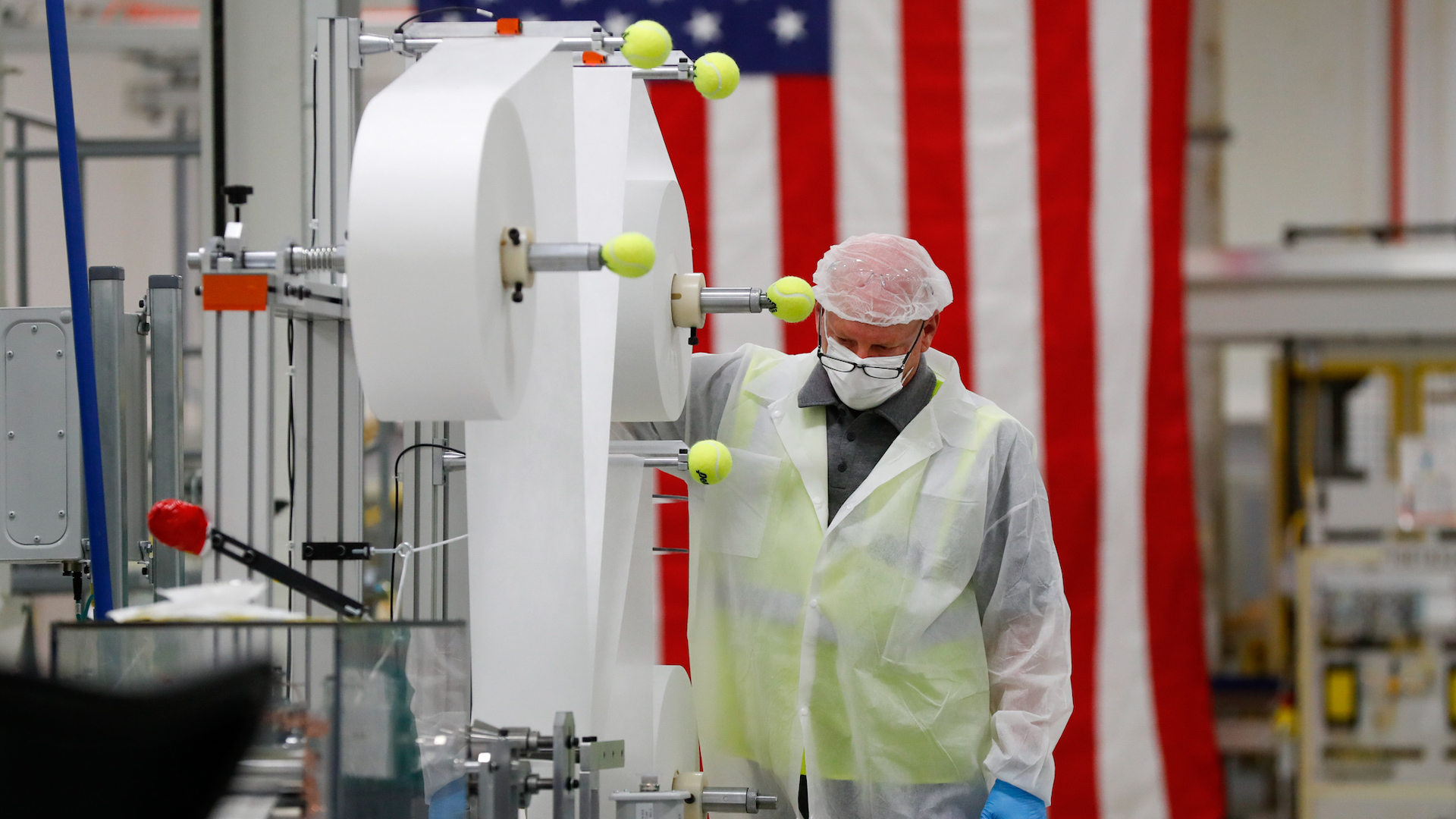

As the coronavirus crisis deepened in the United States in late March, automakers were forced to shutter their production lines to protect workers from possible exposure to the deadly virus. Ford Motor Company and General Motors, two of the largest automakers, shut down their facilities globally. Seeing the pandemic’s brutal effects on their homeland, however, pushed them to take action to help, the Blue Oval’s Bill Ford and GM CEO Mary Barra explained on 60 Minutes Sunday night.
The complex nature of automobile manufacturing, coupled with the companies’ ability to produce products quickly, uniquely positioned the auto industry to gear up and produce medical equipment. Both Ford and GM shifted from making cars, trucks to producing ventilators, respirators, face shields, and other protective equipment for patients and healthcare professionals.
On the GM side, CEO Mary Barra explained that her company partnered with a Washington company called Ventec, makers of portable ventilators. GM’s VP of North American Manufacturing, Phil Kienle, flew to Seattle with a small team for a meeting with Ventec on a Friday and by the weekend his global supply chain organization was already in motion sourcing components. He says they converted GM’s Kokomo, Indiana facility nearly overnight, shifting it from an automotive electronics manufacturing plant to one that makes ventilators. The facility was an ideal fit because both items have a lot of circuit boards. A mix of salaried and UAW workers were called in to help.

Though GM was first to get their plan underway, Ford also moved quickly. Executive Chairman Bill Ford said during the interview that the company was uniquely positioned to make a large number of complex ventilators. Ford took pride in claiming that the company typically cranks out one F-150 pickup truck every 52 seconds, so clearly the assembly capability is there. That’s a massive industrial machine that could be turned on to other tasks, which is exactly what the company did. Ford pivoted from making vehicles to producing emergency safety equipment earlier this month, one that’s benefitting local and nationwide healthcare facilities and personnel.
Ford also explained that the people who returned to the factories to make equipment are doing so in modified conditions designed to keep them safe. Employees are wearing face masks and shields, and work at stations have been outfitted with plastic barriers to enforce social distancing, as well as testing Samsung-made wristbands that track employees’ proximity to each other and buzz if they get within six feet of another person.

It’s unclear at this point when any automaker will ramp up production in the United States again—or as Barra put it herself, return to “the new abnormal”—despite some expressing desire to get back to business as early as May. The United Auto Workers Union has voiced strong concern over worker safety and says that it’s too early to start making concrete decisions on restarting production.
Only time, and science, will tell.